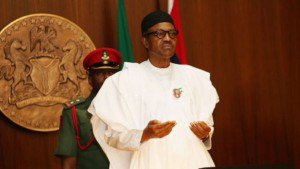THERE is no provision for foreign exchange allocation for students and those seeking medical treatment overseas, the President said, ending controversies trailing the policy.
President Muhammadu Buhari had at the media chat in December last year said he was going to work with the Central Bank of Nigeria (CBN) to allocate a particular amount of foreign exchange for Nigerians schooling abroad.
But last month, the Bankers Committee, after its meeting in Abuja, said it would soon stop the allocation of foreign exchange for medical and school fees abroad.
The CBN, in another clarification, said it had not banned the allocation of foreign exchange for education and medical bills.
“The Central Bank of Nigeria (CBN) wishes to clarify to the general public that it has NOT stopped the allocation and sale of foreign exchange for purposes of paying school fees and settlement of medical bills overseas,” Ibrahim Mu’azu, the apex bank’s Director of Corporate Communications, said.
In an interview with AlJazeera, the President overruled the CBN, insisting that it will henceforth, be “tough luck” for those who are or wish to school abroad. Those who can afford foreign education for their children can go ahead, but Nigeria cannot afford to allocate foreign exchange for those who decided to train their children outside the country.
“We can’t just afford it. That is just the true situation,” the President said.
Buhari also said those who were making means through trading with the dollar would be pursued and punished.
“Anybody who was given dollars by the CBN to import pharmaceuticals and decided to sell at parallel market in order to make maybe additional N100, we will pursue them and punish them,” he said.
Even before Buhari’s pronouncement, many Nigerians schooling and receiving medical attention abroad claimed the CBN had stopped the allocation of foreign exchange to them, since they could not access Form A.
Many Nigerians, who have been caught up by the new policy said the policy constitutes a threat to their existence as well as increased their burden to settle outstanding bills,
“It is inhuman for CBN to expect us to source foreign exchange through the parallel market and even when you have the foreign exchange, you cannot remit it to the end user.”, one of them lamented.
No forex for students, medical trips abroad – Buhari

